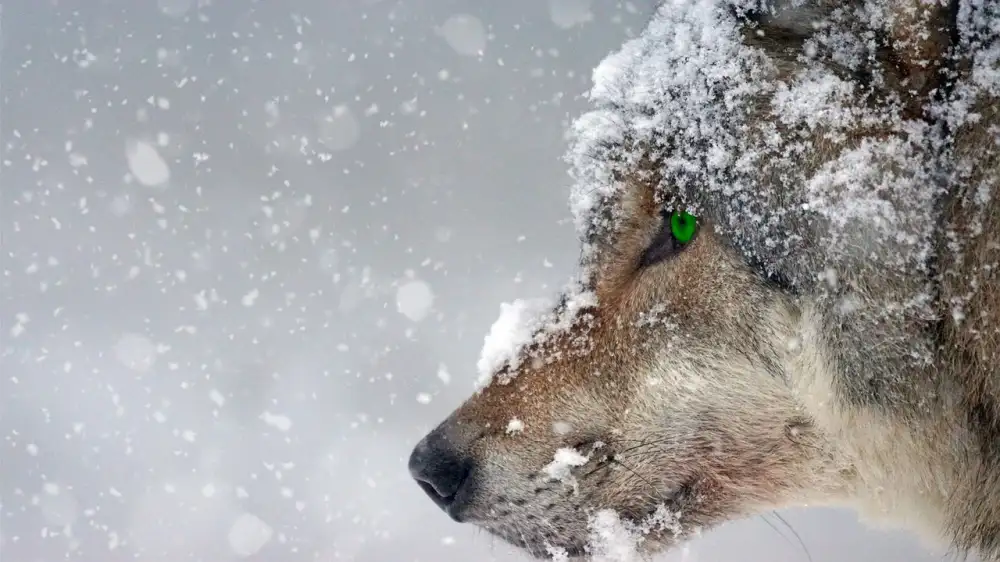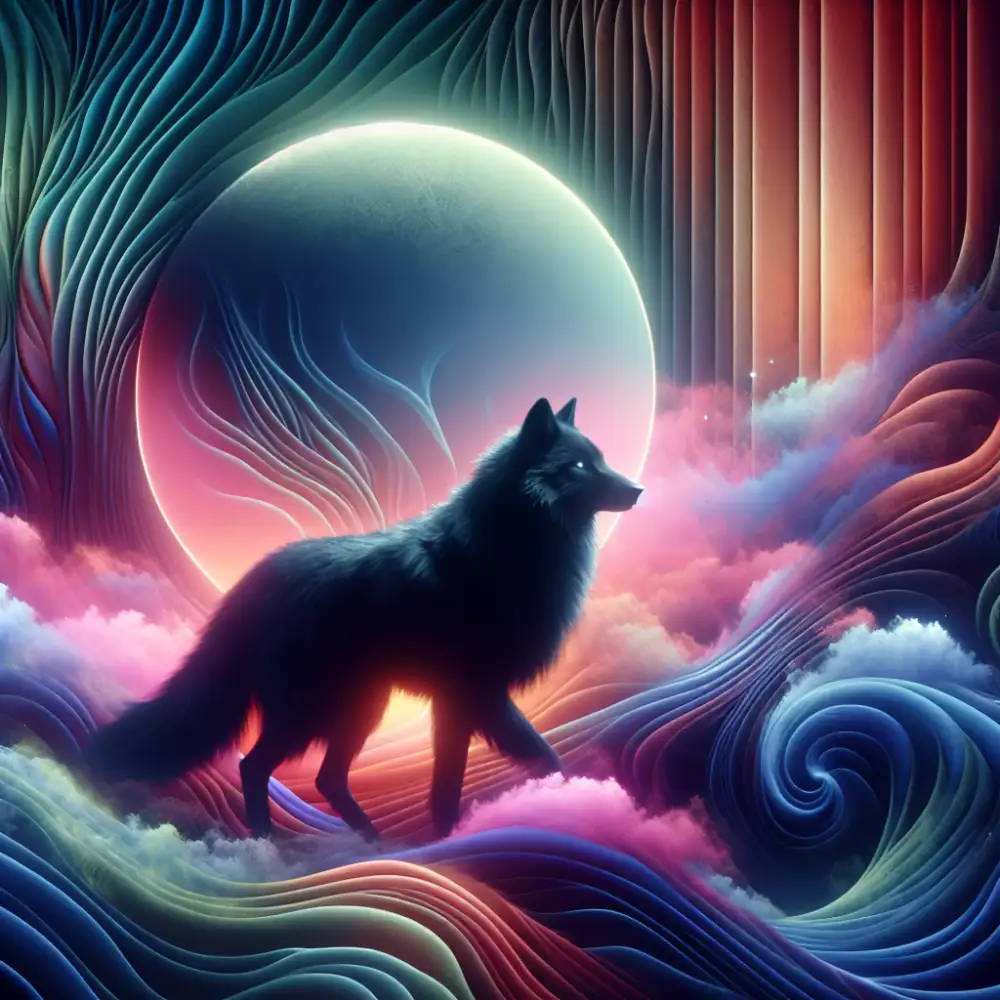Black Wolf Dream Meaning: What Your Subconscious Is Trying to Tell You

Black Wolf: Symbol of Shadow Self
The black wolf, often shrouded in mystery and misunderstanding, holds a powerful position as a symbol in various cultures. Unlike its gray counterpart, the black wolf embodies the shadow self, the hidden aspects of our being that we often repress or deny. This archetype represents the unknown, the primal instincts, and the raw emotions we may fear to confront.
Encountering the black wolf, even symbolically, can be a call to acknowledge these hidden parts of ourselves. It's an invitation to integrate our shadow, to understand and accept our darkness and light as part of a unified whole. This process of integration can be challenging, but it ultimately leads to greater self-awareness, personal growth, and a richer understanding of the human experience.
Facing Your Dark Side
Acknowledging our shadow self, those parts of us we deem unacceptable or undesirable, can be daunting. We often shove down negative emotions, repress memories, or ignore our flaws, hoping they'll magically disappear. But these unaddressed aspects don't simply vanish. They fester in the background, influencing our thoughts, behaviors, and interactions. Facing your dark side isn't about celebrating negativity. It's about compassionate self-reflection. It's about understanding the root of harmful patterns and consciously choosing healthier responses. It's about integrating all parts of ourselves, shadows and light, to become whole.
Intuition and Primal Instincts
Intuition, that gut feeling that often guides us, is often contrasted with primal instincts, those deeply ingrained survival mechanisms we share with other animals. While both operate beneath conscious thought, they differ significantly. Intuition is a form of subconscious processing that draws on our past experiences and knowledge to offer insights or solutions. It's that feeling of "knowing" something without understanding why. Primal instincts, on the other hand, are hardwired responses to immediate threats or needs, like the fight-or-flight response or the drive to reproduce. These instincts are less about nuanced understanding and more about ensuring survival in the face of danger. Think of intuition as a wise whisper and primal instincts as a blaring siren. Both have their place, but understanding their distinct roles can help us navigate decisions and understand our own behavior more effectively.
Transformation and Spiritual Growth
Transformation and spiritual growth are deeply intertwined journeys of self-discovery and evolution. Transformation involves profound shifts in our perspectives, beliefs, and ways of being. It often arises from significant life events, inner awakenings, or a deep desire for change. Spiritual growth, on the other hand, is the continuous process of connecting with our true selves, our purpose, and something greater than ourselves. It involves cultivating qualities such as love, compassion, wisdom, and inner peace. As we embark on a path of spiritual growth, we naturally undergo transformation. We shed old patterns and limitations that no longer serve us, embracing new ways of thinking, feeling, and showing up in the world. Through practices like meditation, mindfulness, and self-reflection, we gain a deeper understanding of ourselves and our place in the universe. This understanding empowers us to make conscious choices that align with our values and aspirations, leading to greater fulfillment and purpose in life.

A black wolf in your dreamscape is not a harbinger of darkness, but a guide through it. It asks you to confront your shadow self, not to be consumed by it, but to integrate its wisdom and emerge whole.
Elias Thorne
Independence and Lone Wolf Energy
Independence and lone wolf energy often go hand in hand. There's a certain allure to marching to the beat of your own drum, answering to no one but yourself. This independent spirit often translates into a strong sense of self-reliance and a deep-seated desire for freedom. Lone wolves, much like their animal counterparts, thrive in solitude, finding peace and clarity away from the pack. They're comfortable in their own skin, content with their own company. This isn't to say they're anti-social, but they're highly selective about their circle, valuing quality connections over quantity.
Published: 10. 06. 2024
Category: spirituality



